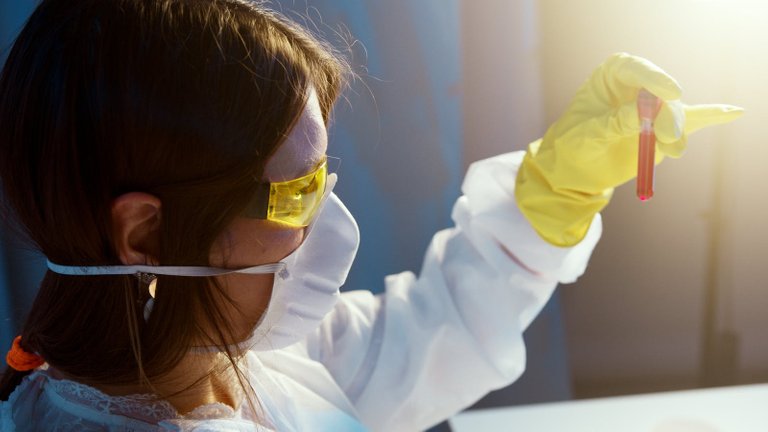The Chances of Getting Blood Infection.
With the level of poor health care systems in some underdeveloped countries, the possibility of contracting an infection during treatment is not far-fetched. I visited a sick friend at a hospital a few weeks ago, the environment of the hospital was not attractive at all, everywhere looked not as tidy as I would have expected a hospital to look, as a matter of fact, I saw blood spill on the ground, according to the nurses, a patient came to the hospital a few minutes ago for treatment and they had to help treat the injury, for the fact that the man with the bleeding hand was no longer there by the time I got there, made me believe the place should have been appropriately tidied before I got in.
To make matters worse, the young ladies I meet there are not even certified doctors or nurses, they learn the skill for a specified period and after then, they receive the go-ahead to begin to handle medical cases brought to them. On the day I got there to visit my friend, the doctor was not around to supervise but the ladies were still receiving patients and treating them on his behalf without any supervision. I was moved to tears when my friend told me she had no other choice than to come here as this was what she could afford. According to sources around, the doctor is really good but the neatness of the environment gave me great concern.
People surprisingly patronize this hospital since the fees appear to be cheaper than the properly maintained health care facilities we have, what was running through my mind through this entire scenario is the level of transferred infection that would take place regularly in that hospital.

pexels
The possibility of getting a blood infection is sure not unreal, there is a great chance of the blood getting infected with bacteria, and the possibility of fungi or viral infection is not also impossible once they find their way into the bloodstream. The medical term for blood infection is ''Sepsis''. Sepsis is the process that describes the response of the immune system to an infection, the response made can damage organs and create a life-threatening condition. Symptoms of sepsis include;
- Rapid heart rate.
- Confusion.
- Difficult breathing.
- Fever and chills.
- Difficult breathing process.
- Intense pain.
- Extreme sweat.
Sepsis is more likely to occur in old people, those who are extremely young, have an already weak immune system, and of course, those with an already existing health condition, stand a high chance of getting sepsis. It is a very common condition based on the fact that it can be gotten through shots gotten into the blood vessel. If an IV tube is left for a long time or even through blood transfusion, bacteria are usually found on the surfaces of most objects, the use of gloves, and proper sterilization of equipment would help prevent the spread of viruses and bacteria.

pexels
During the process of sepsis, your immune system which is supposed to defend you from germs begins to release so many chemicals into the blood, the release of the chemicals, triggers widespread inflammation which could result in organ damage. The occurrence of clots reduces the level of blood flow into internal organs and the limbs, this way, the requirements of oxygen and nutrient needed would be deprived. In most cases, when sepsis occurs, there would be a strong drop in blood pressure, this occurrence is described as ''septic shock''. The septic shock would immediately result in organ failure, organs like the liver, kidney, and lungs.
Sepsis occurs in stages, there are three main stages of sepsis;
The first stage is when the infection enters the bloodstream and creates inflammation in the body.
The second stage is the stage of severe sepsis, at this point, the inflammation and the infection are strong enough to start affecting the function of the organ.
Septic shock is the third stage of sepsis occurrence, it is a point of severe complication causing a great drop in blood pressure, this stage can result in some serious complications like; stroke, respiratory or heart failure, organ dysfunction, and even possibly death. One downside is, you may not even be aware of the presence of an infection that would lead to sepsis.
Any form of infection could result in sepsis, but the chances of having a higher infectious risk lie in;
- Having pneumonia.
- Kidney infections.
- Abdominal infection and
- Blood poisoning.
Complications may come out of certain sepsis complications, these complications could create problems affecting the entire body, the possible complications are;
Dead tissue on the toes and the fingers which could lead to amputation.
A higher risk of getting infected again.
Damage to the heart, the brain, or even the lungs.
Kidney failure.
Of course, there is the treatment for sepsis, in order to treat sepsis, the patient would be kept in an intensive care unit (ICU), the medical experts in charge would first try to stop the infection and then continue to keep the organ working as the blood pressure is effectively managed. In severe cases, a breathing machine, kidney dialysis, or even surgery may be required to drain and completely clean out the infection.
Preventing Sepsis.
The best way to prevent sepsis is to actually prevent any possibility of infection, preventing infection involves doing these things;
Keeping up with the right vaccines for health conditions like chickenpox and flu.
If there is any injury that has to lead to having open skin, ensure it is cleaned as soon as possible, and cover it up appropriately too to avoid any form of infection during its healing process.
Wash your hands frequently with soap and water.
If you have a chronic health condition, ensure it is appropriately managed.
Do not think of home remedies for the treatment of an infection, seek medical help as soon as you can.
References.
https://www.webmd.com/a-to-z-guides/sepsis-septicemia-blood-infection
I recently got an extraction in a state hospital and I must say that the hygiene was good and the environment was patient friendly.
Most times people working in these places are overwhelmed, like in Nigeria with a doctor patient ration of 1: >/= 5000. They most times just want to be done with the patient that they ignore overseeing the environment.
This should be communicated far and wide.
👍👍
Thanks for your contribution to the STEMsocial community. Feel free to join us on discord to get to know the rest of us!
Please consider delegating to the @stemsocial account (85% of the curation rewards are returned).
Thanks for including @stemsocial as a beneficiary, which gives you stronger support.